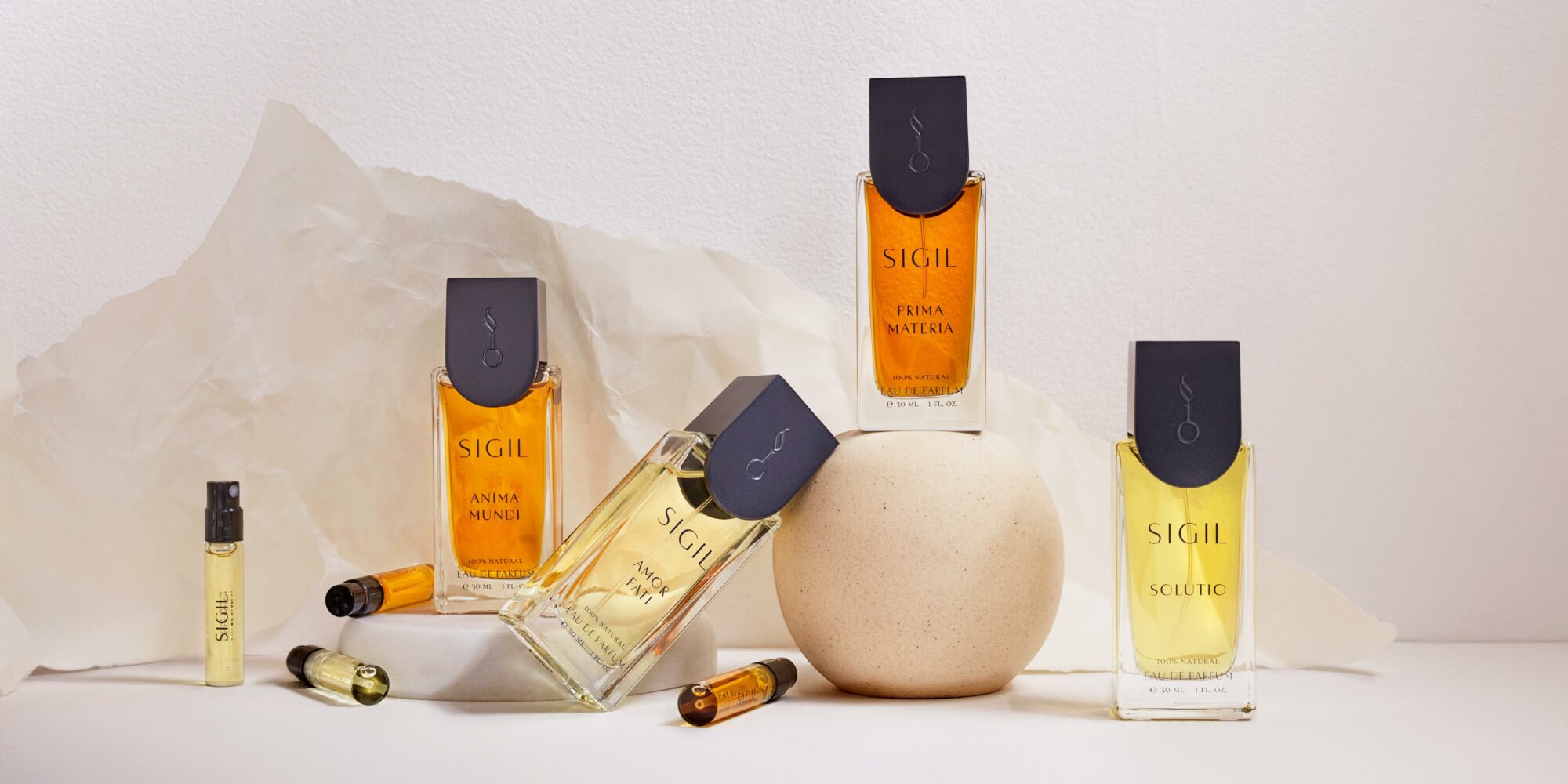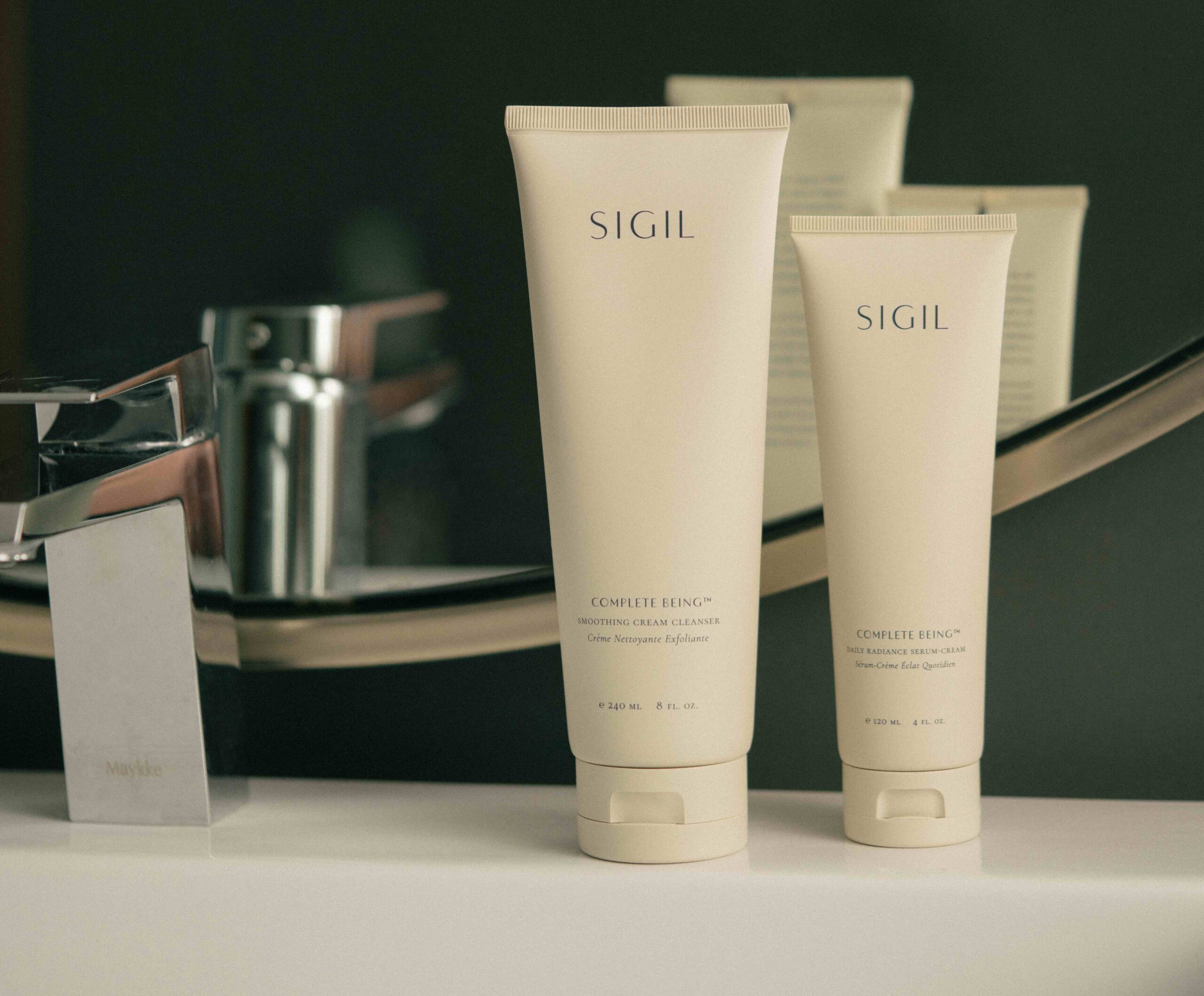
Sigil’s Patrick Kelly Explains Why He Decided To Close His Barrier-Busting Scent Brand
Following a difficult year confronting supply chain snarls, Patrick Kelly has closed Sigil, the brand he started seven years ago that showed natural scents can be sophisticated with its striking, gender barrier-busting fragrances. The brand announced the closure on social media and its website five days ago after a week of stopping e-commerce transactions and social media posts.
“I made this decision and, once I make a decision, I’m like, ‘Alright, let’s get this done,’ but I turned the website off and froze Instagram for a week for it to really gel,” says Kelly. “Of course, I’ve always been about transparency, and people were wondering what was going on, but I needed that space to prepare myself for the imminent wave of questions and concerns.”
The questions Kelly had faced about his business—Can it endure persistent merchandise delays? How much cash does it need to play in an environment characterized by soaring costs?—are common questions beauty businesses are weighing now, whether they’re generating hundreds of thousands or millions of dollars in revenues. Many beauty entrepreneurs are trying to sell their companies or mulling over closing them. Earlier this month, influencer Marlena Stell divulged she was shutting Makeup Geek, the makeup brand she previously shared had crossed $22 million in sales, due largely to supply chain hurdles.

At Sigil, Kelly says, “We were at an all-time high in terms of demand and that feels good, but the clean veneer you see on the surface doesn’t reveal seemingly insurmountable supply chain issues. To meet the demand that we had seen and achieve better margin, we quadrupled our PO volume for our fragrance assortment last summer. We haven’t seen all of those parts reach our filler still as of today. That’s really a challenge when the demand is there and the supply can’t meet it. Then, we had to reduce operating expenses because we had to turn down retail POs.”
At its height, Sigil had five employees on payroll and a freelance network of 40 to 50 people. To reduce operating expenses, it laid off employees, and Kelly cut his salary. Sigil had been stocked by 175 to 200 e-tailers and retailers such as The Detox Market, Standard Dose, Beauty Heroes and Revolve. This year, it was on track to 4X its sales from last year were it able to obtain the goods to do so, according to Kelly.
Prior to closing, the brand’s assortment spanned 11 fragrance products, including the fragrances Amor Fati, Solutio, Anima Mundi and Prima Materia, and two Complete Being skincare products introduced in January: Smoothing Cream Cleanser and Daily Radiance Serum-Cream. Epitomizing its supply chain struggles, the brand could barely secure enough of its skincare products for press to promote their launch.
During college, Kelly entered the beauty industry in sales for Aveda and would eventually assume an educational role before joining L’Occitane Group in a learning, performance and culture position. From L’Occitane, he took a similar position at Patagonia, where he began to tinker with Sigil on the side. Kelly founded the brand in 2015, and it received a roughly $150,000 revamp in 2019 to align its message with its look. Design agency Grafikisto helped retool the aesthetics.
“We were at an all-time high in terms of demand and that feels good, but the clean veneer you see on the surface doesn’t reveal seemingly insurmountable supply chain issues.”
“It started as informal experimentation and grew from that. I studied film and philosophy, and they informed the brand,” says Kelly. “It has a waxing philosophical feel that’s also approachable. It’s not stuffy. It has a contemporary community and sensibility that surrounds it.”
Sigil was in the process of completing a seed funding round at a valuation of $5.75 million until Kelly terminated the raise as the brand became gripped by supply chain problems. He says, “I certainly could have taken all that money and kicked the can further, but it didn’t feel right. It didn’t feel anchored in integrity.”
Kelly also considered selling the brand. That didn’t feel right either. Kelly says, “What I built was more important than a brokered deal. I held onto the ship as long as I could through many months of delays and where I landed was I wanted to retain the intrinsic value of the brand and the IP and community that was built that connected to the sensibility, aesthetics and voice of the brand, all of those aspects will carry on.”
Reflecting on Sigil’s history, Kelly doesn’t think he would change much. He might have pursued upfront funding or evaluated additional domestic supply alternatives, but that’s about it. Sigil’s merchandise was cobbled together from sources around the world. Its glass bottles were from Italy, raw fragrance materials from dozens of countries, and bio-resins and rigid board from China. Production was handled domestically for the fragrances and skincare. If Sigil were to move to domestic suppliers for elements of its merchandise sourced abroad, Kelly estimates the retail price for its fragrances may have increased to $175 from $130.

“The intersection of quality and price is amazing in China as everybody knows, and that’s why everyone relies on it,” he says. “There are vendors that exist in the States, and you make tradeoffs between social and environmental [impacts], and margins that are really nuanced and challenging. It’s possible [to go domestic] if you build that into your business model and account for it in your margins.”
Kelly isn’t finished creating. For his immediate post-Sigil endeavors, he’s pondering part-time creative director and product development jobs, and he’s working on a podcast project. He’s open to connecting with fellow brand founders via his personal Instagram account. “I absolutely see myself reemerging with another venture at some point. I just need a little bit of time to take a breath between chapters,” he says. Kelly is relieved to have the burdens of dealing with supply chain issues off of his shoulders. He says, “I was miserable and anxious. I was purely in operator mode 24/7 running after solutions to problems that just couldn’t be solved.”
Kelly doesn’t foresee an end to the supply chain quagmire affecting brands. “Unless you have millions in the bank, if you are relying on any sort of global infrastructure, just brace yourself. I don’t even know if it will get better. China has new lockdowns,” he says. “For true values-based, purpose-led brands, if you can find a model that allows you to rely on local or at least domestic suppliers, I would love to explore that more. That’s the most immediately viable solution. Otherwise, it’s just hours of being on the phone about infrastructure and more heads to manage the chaos.”





Leave a Reply
You must be logged in to post a comment.